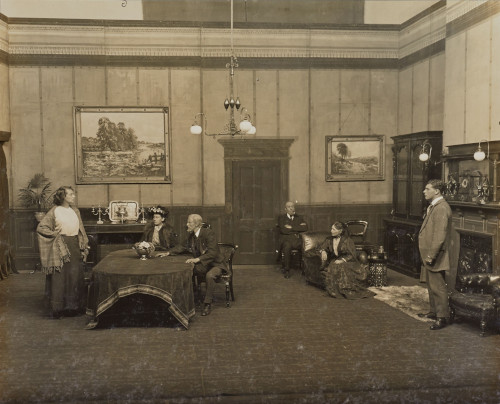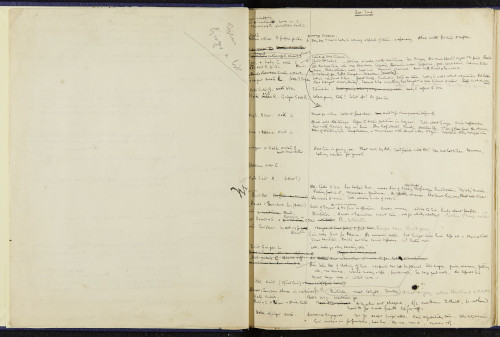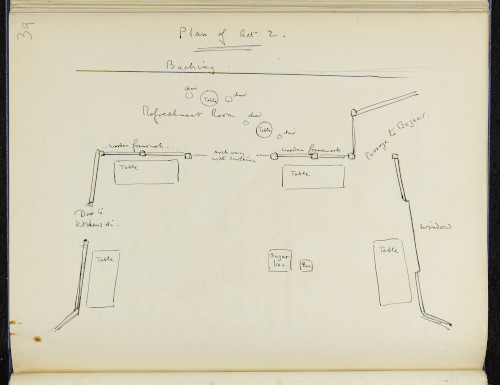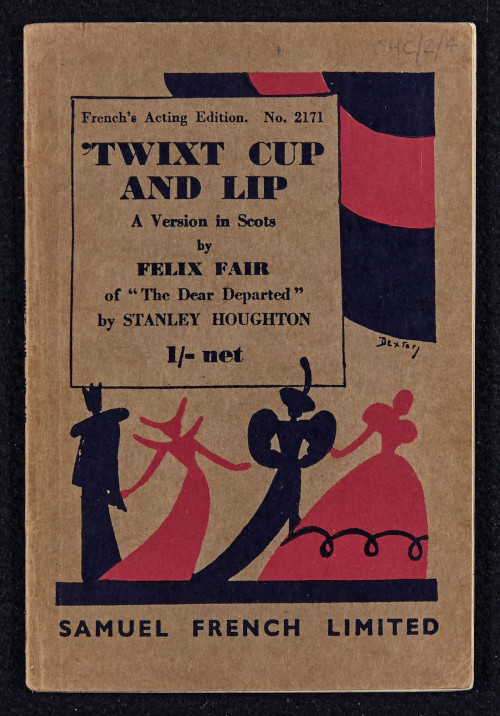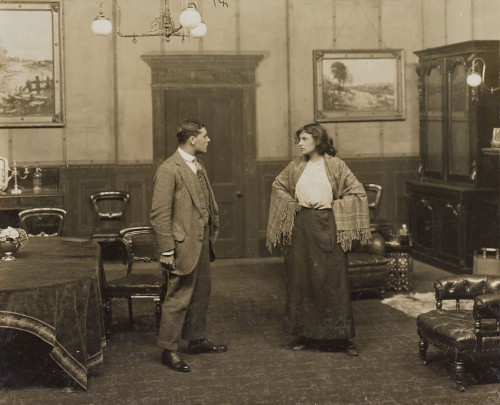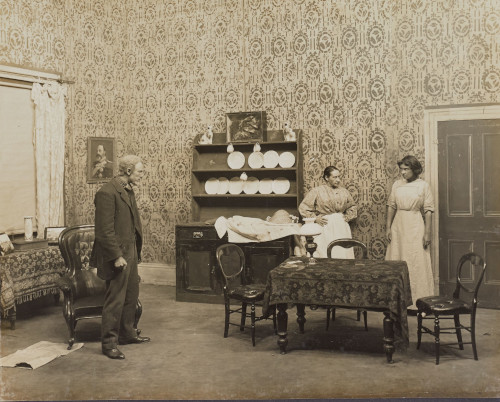Archives Hub feature for May 2022
This month we explore the recently digitised Stanley Houghton Collection held by the University of Salford and made accessible on Salford Digital Archives. 2022 marks 110 years since the first performance of Houghton’s best-known dramatic work, Hindle Wakes.
About Houghton
William Stanley Houghton (1881-1913) was born in 1881 in Ashton-upon-Mersey, Cheshire and during his short life would become one of a group of playwrights known as the ‘Manchester School’.
It would seem Houghton had a standard middle-class upbringing. His father was a cotton cloth merchant in Manchester and in 1896 the family moved to Alexandra Park, a middle-class residential area south of the city from where Houghton attended Manchester Grammar School. On finishing school, Houghton went straight into his father’s cotton business, where he worked as a ‘grey-cloth’ salesman. It was during this time whilst working in the city that Houghton was developing his skills as a playwright and supplemented his income by writing critical reviews for the Manchester Guardian.
Houghton was one of several playwrights championed by Annie Horniman for his focus on what she called ‘real life’. Horniman was proprietor of Manchester’s Gaiety Theatre, the first repertory theatre outside of London with its own company of actors and a rotating programme of plays by local writers. It was through the association with the Gaiety that Houghton’s work was performed to audiences in London and America.
Hindle Wakes
Houghton’s best and most successful work was Hindle Wakes (1912), a comedy about the freedom of the young and the ‘double standard’ of morality. Written in 1911 and premiered at the London Aldwych Theatre in 1912, the play was controversial at the time for its portrayal of a mill girl who shocks the older generation by choosing independence rather than marriage to the mill owners’ son. The play both appealed and shocked audiences but ultimately proved a hit on an international level. The financial success of the play, coupled with the production of Houghton’s earlier work The Younger Generation (1909) enabled him to leave the cotton trade and take to writing full time.
However, Houghton’s career as a full-time writer was short lived. After moving to London and then Paris, Houghton returned to Manchester in ill health where he died in 1913 at the age of 32.
Highlights from the collection
Purchased by the university of Salford in 1983, the Stanley Houghton Collection is largely made up of unpublished manuscripts of plays which give insight into his working methods and character. It was through a ‘chance check in a Manchester telephone directory’ that a PhD student at the University interested in the life and work of the writer discovered Houghton’ living descendants. It turned out that they had kept a collection of previously unseen manuscripts by Houghton and photographs of early performances ‘wrapped in brown paper…in various suitcases in the house and garage’.
The works are a mixture of comedies, such as Pearls (c1910) which was designed for the music hall, and melodramas such as The Intriguers (c1906) that demonstrate his development as a writer and working method. Ginger (c1910) is evidence of Houghton’s approach to planning and plot development. I particularly like Houghton’s handwritten note on the page opposite the start of Act 2, to ‘focus Ginger a bit’, which makes me think of Houghton, pencil in hand reviewing his work. The typescript of Act 3 of Trust the People includes handwritten stage prompts to get the ‘gramophone ready’, giving a sense of how the work might have been produced on stage.
There are also published first edition translations of some of his works including Twixt Cup and Lip, a version of Houghton’s play The Dear Departed in Scots dialect by Felix Fair.
My favourite items in the collection are two sets of photographs of early 20th century theatre productions of Hindle Wakes and The Younger Generation. They include actors from the Gaiety Repertory Theatre who first performed Hindle Wakes some 110 years ago at the London Aldwych Theatre. The photos not only capture the sets and costumes of a theatre production at a particular point in time, but are also portraits of early 20th century actresses, including Ada King, Sybil Thorndike and Edyth Goodall.
I would love to see the Stanley Houghton Collection used more for teaching and research. Houghton was writing and dramatizing the life and society of the young just before the start the 1914 Great War which of course would have an enormous impact on his own generation.
Salford Digital Archives
The Houghton manuscripts and photographs are one of several collections now available on Salford Digital Archives, the University of Salford’s new platform to access digital archive content online.
Other collections on the platform include Brass Band News, a unique newspaper about brass bands from the 1880s up to the 1950s, alongside photographs from the Working Class Movement Library and the Bridgewater Canal. We are adding new collections to the platform in due course including a set of architectural drawings and plans for the University campus and two series of Salford Student Union newspapers. We welcome ideas for new collections and opportunities to work in partnership to curate content from our own and other archives.
Alexandra Mitchell
Archivist, The University of Salford
Related
Stanley Houghton Collection, 1906-1930s
Brass Band News Digital Archive (Online Resource)
Browse all University of Salford Archives & Special Collections descriptions:
On the Archives Hub (main site)
On University of Salford microsite (Archives Hub repository website)
Browse all Working Class Movement Library collection descriptions on the Archives Hub
All images copyright University of Salford Archives & Special Collections. Reproduced with the kind permission of the copyright holders.

